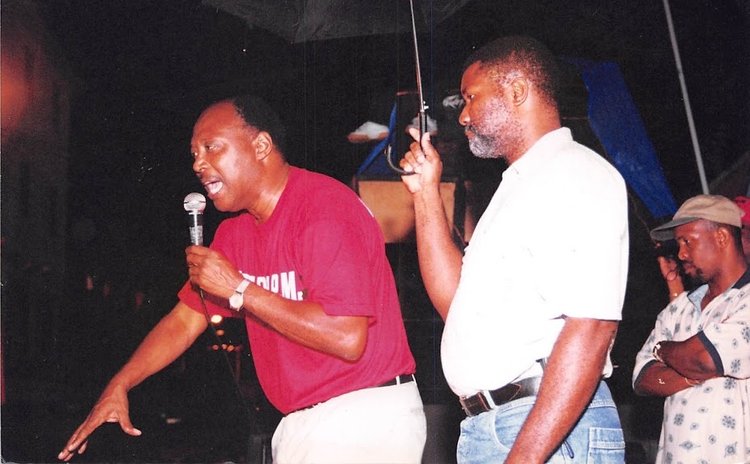The Stress of Leadership
Remembering Pierre Charles: From the Sun Archives: Jan. 7, 2015

ROSEAU, Dominica. January 12, 2004 (Sun)- The recent death of Dominican Prime Minister Pierre Charles is a scary reminder of the severe pressures which are part and parcel of the high office of Prime Minister.
In these parts, more often than not, we hear of health matters affecting our prime ministers when the problems have overtaken their bodies and produce death. Perhaps the health of our leaders should be of great concern to us; since we have lost quite a number of our prime ministers within the past 25 years.
In 1978 and 1979, we lost Mr. Robert Bradshaw and Mr. Paul Southwell respectively. In 1981, Eric Williams left us, and in 1985 Tom Adams and Forbes Burnham both departed for the great beyond to be followed by Errol Barrow in 1987. There was then a ten-year hiatus until Cheddi Jagan died in 1997 followed by Rosie Douglas in 2000.
In addition, at various times between 1987 and 1999, Desmond Hoyte, Michael Manley, Sir Lloyd Erskine Sandiford, Mr Basdeo Panday, Mrs. Janet Jagan, and Sir James Mitchell were all reported as suffering from health problems.
I am not for one moment saying that only Caribbean prime ministers fall victim to the stress of office resulting in health problems, since the record shows that other national leaders have also been so affected. Worse still, some of them maintained their positions in circumstances that could have damaged the national interest.
For example, Mr. Harold MacMillan as a Cabinet Minister when Winston Churchill was Prime Minister wrote: "Churchill is now almost speechless in Cabinet; alternatively he rambles about nothing. Sometimes he looks as if he is going to have another stroke."
Sir Anthony Eden, Churchill's successor, was known to be suffering from the toxic effects of bile duct infection, and the chemical effects of stimulants. He was on prescription drugs that had certain side effects and also on stimulants to counter the side effects.
We will never know if MacMillan's prostate condition affected his sacking of 13 of his colleagues as he lay flat on his hospital bed wielding power in an episode that has been called the ¬Night of the Long Knives.
Nearer home, Prime Minister Sandiford has spoken about the problem. He spoke in 2000 about leaders in the Caribbean when episodes of illness just came upon them. According to him: "I was sitting beside this leader and he just collapsed. It is a major problem and it is stress."
He continues: "The doctors can say what are the causes of death, but I know that a contributing factor in the life of a busy leader is stress."
I take Sir Lloyd's views seriously. He has worn the shoe and knows how it pinches. He, therefore, advises Prime Ministers to make exercise a part of their daily routine and to have a healthy diet.
That is the kind of advice which should apply to everybody in what is referred to as sedentary jobs.
Yet there can be no doubt that notwithstanding appropriate exercise and diet, the job of the Prime Minister brings with it unique pressures. Here are the views of two former prime ministers. First Sir Lloyd Sandiford.
"I had to deal with problems at the highest levels and the weight of having to take decisions is what brings on the stress because when you have to take weighty decisions that is a weight on your shoulders, on your heart, your entire body. At Budget times sometimes, I never used to sleep on those days leading up to the Budget."
In his last Budget Presentation in 1984, Tom Adams, a political animal who enjoyed the office said at the end of his presentation: "Mr. Deputy Speaker, this is the 8th Budget I have had the honour to present to this House. It is not usual in Budgetary presentations to touch a personal note, but on this occasion, I feel constrained to depart from the norm and say that never before have I felt so great a sense of pressure leading up to my financial proposals as this year."
Within a year he was gone.
Given the history of health problems associated with our political leaders in the past 25 years, the health of our leaders has definitely become more than a matter of personal concern. The political health of the nation may also be involved, and the stakes are high.
Observer




